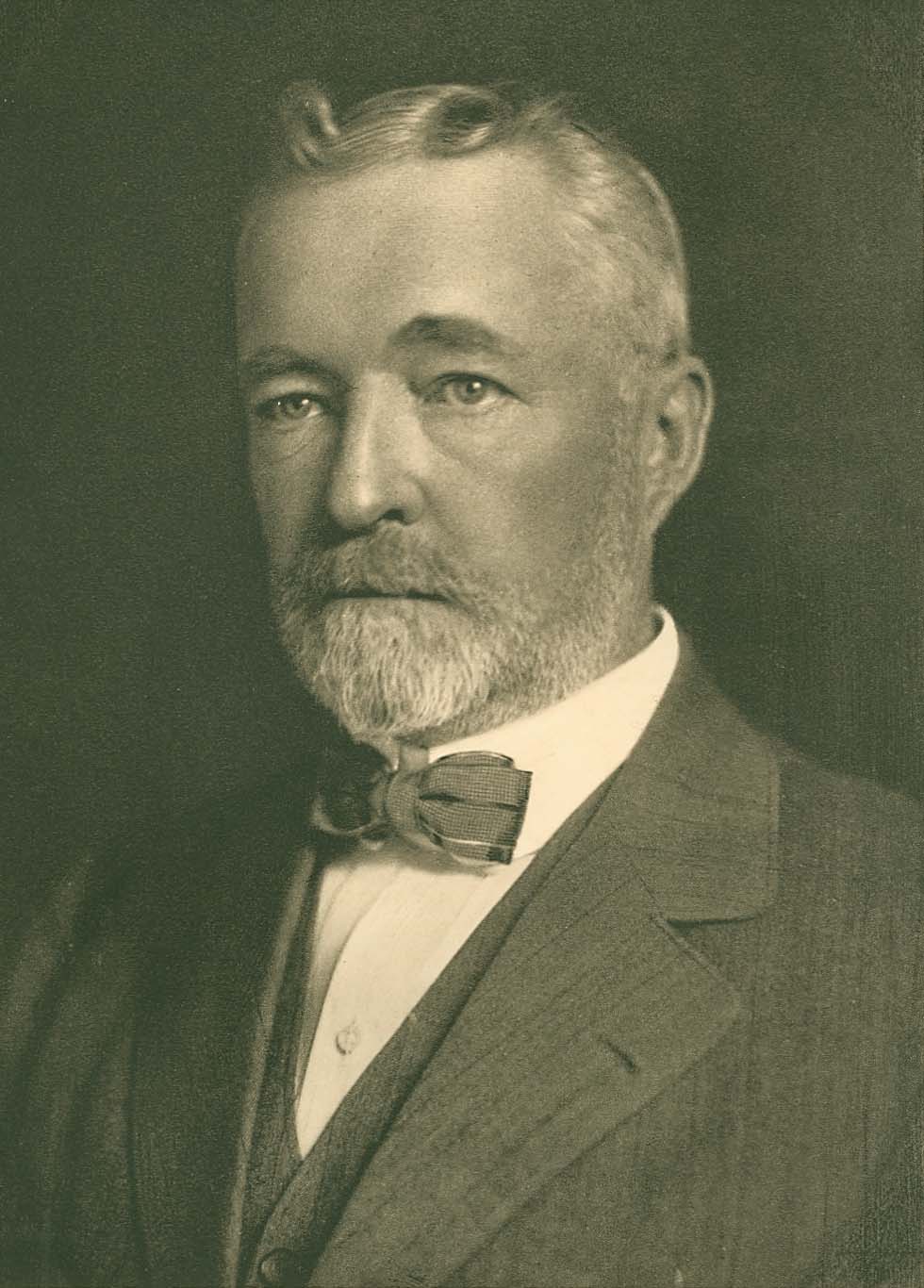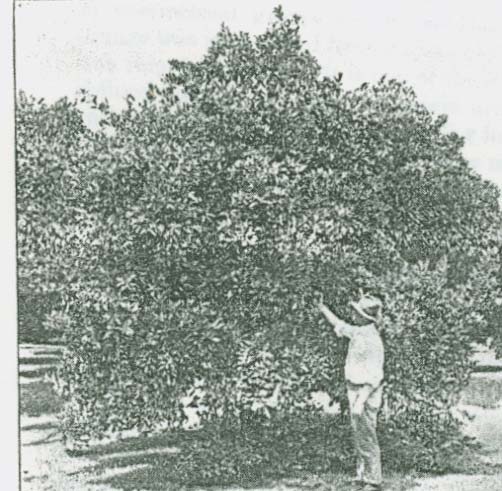T
Temple, William C (1862-1917)
Citrus Industry: Magnate & Civic Leader

William Chase Temple was born on December 28, 1862 in Starke, Bradford County Florida. He was the son of William Clemons Temple and Mattie Josephine Chase Temple. His family moved to Delaware shortly after his birth. William attended the public schools in Wilmington and graduated from the Delaware State Normal School in 1879. That same year, he traveled to Milwaukee, Wisconsin, where he worked for the packing house of Plankington & Armour and for the Alexander Mitchell Bank. He traveled to Florida where he spent two years working in the lumber industry as manager of the Alexandria Groves on the St. John’s River. He also traveled to Chicago, Illinois where he developed the Johnson Automatic Temperature Control business. From 1885-89 Temple was president and general manager of Metropolitan Service Electric Company in New York City. He was also involved with the Babcock & Wilcox Company in Pittsburgh, Pennsylvania. Overall, Temple was director to more than twenty banks, trust, lumber, coal and mining companies in and around the Pittsburgh area.

Temple arrived in Winter Park in 1897. The following year he bought an estate and orange grove on Lake Maitland that he named “Alabama.” He lived on the property until 1915. While in Winter Park, Temple demonstrated interest in town development. He served three terms as mayor and was the first president of the Board of Trade. He was also a generous donor and trustee of Rollins College.
In 1909 he developed the Florida Citrus Exchange along with other leading citrus growers. At the time, the orange grove industry lacked organization and many groves were poorly managed. [1] There was a lack of spraying and controlling of pests as well as problems with irrigation and quality of fruit sold. As a result, profit were low and the industry struggled. [2] While rebuilding the industry, a man named John Hakes contacted Temple about an interesting orange he found in his orange grove. Temple was impressed with its deep color, tenderness and flavor. [3] He suggested Hakes send a sample to D.C. Gillette of the Buckeye Nursery in Tampa, Florida. Gillette was also impressed. Hakes and Gillette devised a contract, which stated that Buckeye Nursery would become owner of all budwoods produced by the parent tree. [4] In return Hakes would receive $2.00 from every tree sold for the next three years. In order to protect the product a name was needed. Gillette and Hakes decided to name the orange after William Temple because of his role in the development of their business. [5] The newly discovered fruit was called the Temple orange.

Temple was involved in a plethora of civic and fraternal organizations, including the Masons, Odd Fellow Elk Organization, The Sons of the American Revolution, Mayflower Society, Duquesne Club of Pittsburgh, Cuyamaca Club of San Diego and Rotary Club of Tampa. [6] He was the owner of the Pittsburgh National League Baseball Club of which he was also president. He played a crucial role in the development of professional baseball leagues by increasing player salaries and advocating for improving the quality of game play. [7]
Temple married Carrie Lee Wood in Jacksonville, Florida on April 13, 1884. He had one son and three daughters. His son, William and daughters Mary Louise and Carrie Ruth all died in childhood he was survived by Dorothea Temple. William Chase Temple died on January 9, 1917 in Winter Park, Florida.
– Kerem K. Rivera
Tiedtke, John M. (1907-2004)
Treasurer, Trustee and Supporter

 John M. Tiedtke was born on September 15, 1907 in Toledo, Ohio. His father, Ernest Tiedtke owned a grocery store. As a young man he attended the Culver Military Academy. From 1920 to 1921 John Tiedtke studied music at Rollins College and in 1926 he attended Dartmouth College where he received an Artium Baccalaureatus Degree in 1930. He was a member of the Sigma Nu fraternity. He furthered his education by attending Dartmouth’s Amos Tuck School of Business administration, and graduated with an M.C.S Degree in 1932. He then worked for two years as an accountant at the firm of Widemen and Madden in Toledo. After the Great Depression struck America, Tiedtke moved to Florida to assist his uncle’s business. [8]
John M. Tiedtke was born on September 15, 1907 in Toledo, Ohio. His father, Ernest Tiedtke owned a grocery store. As a young man he attended the Culver Military Academy. From 1920 to 1921 John Tiedtke studied music at Rollins College and in 1926 he attended Dartmouth College where he received an Artium Baccalaureatus Degree in 1930. He was a member of the Sigma Nu fraternity. He furthered his education by attending Dartmouth’s Amos Tuck School of Business administration, and graduated with an M.C.S Degree in 1932. He then worked for two years as an accountant at the firm of Widemen and Madden in Toledo. After the Great Depression struck America, Tiedtke moved to Florida to assist his uncle’s business. [8]
In 1938 Tiedtke purchased a tract of land in the Florida Everglades and cleared it to plant sugar. From 1936 to 1943 he worked as photography instructor at the Rollins College. Hamilton Holt requested him to teach a ten-week beginners course in photography, and beginning in 1946 he served as an assistant professor of economics during the spring semesters until 1951. On June 2, 1949, Tiedtke received the Rollins College Decoration of Honor. That same year Tiedtke worked as treasurer and business manager until he was elected as second vice president. In 1951 he became a full professor of economics and the first dean of graduate programs, serving from 1960 to 1965. In June of 1969, he was elected to the Rollins College Board of Trustees. [9]
When John M. Tiedtke wasn’t working, he spent much of his leisure time playing tennis or pursing his musical interests. He was a founding member of the Florida Symphony Orchestra. He made generous donations to both the Rollins College Music and Theater Departments. Tiedtke’s most notable contribution to the arts was his involvement in the Bach Festival. Since1950 he had served as the president of the Bach Festival and turned the program into the high quality performances that it is today. [10]
 Tiedtke helped bring well known solo musicians from around the world to Rollins College. In 1983 he established the Enzian Theater in Winter Park to entertain, inspire, educate, and connect the community through film. In 2003, on Tiedtke’s 96th birthday, Rollins College celebrated his service to the school by establishing the John M. Tiedtke Endowed Chair of Music. Dr. John Sinclair, a longtime friend of Tiedtke, was appointed as the chair’s first recipient. [11] John M Tiedke died on December 22, 2004. Rollins College has further honored him by dedicating the Tiedtke Music Hall in his memory.
Tiedtke helped bring well known solo musicians from around the world to Rollins College. In 1983 he established the Enzian Theater in Winter Park to entertain, inspire, educate, and connect the community through film. In 2003, on Tiedtke’s 96th birthday, Rollins College celebrated his service to the school by establishing the John M. Tiedtke Endowed Chair of Music. Dr. John Sinclair, a longtime friend of Tiedtke, was appointed as the chair’s first recipient. [11] John M Tiedke died on December 22, 2004. Rollins College has further honored him by dedicating the Tiedtke Music Hall in his memory.
– David Irvin
- Ethel G. Hakes, “The Romance Of The Orange,” The Florida Grower, February 1964. ↵
- Ibid. ↵
- Ibid. ↵
- Ibid. ↵
- Ibid. ↵
- W.F. Blackman, “William Chase Temple,” History of Orange County, Florida (1927), 64-66. ↵
- Ibid. ↵
- “John M. Tiedtke: Oral History of winter Park Residents.” Winter Park Library History and Archives collection. ↵
- Trustee file: John M Tiedtke. 10 B, Rollins College Archives. ↵
- Jami Furrow, “John M. Tiedtke: A Legacy of Music Benefactor Extraordinaire.” The Sandspur, February 25, 2005. ↵
- Ibid. ↵

